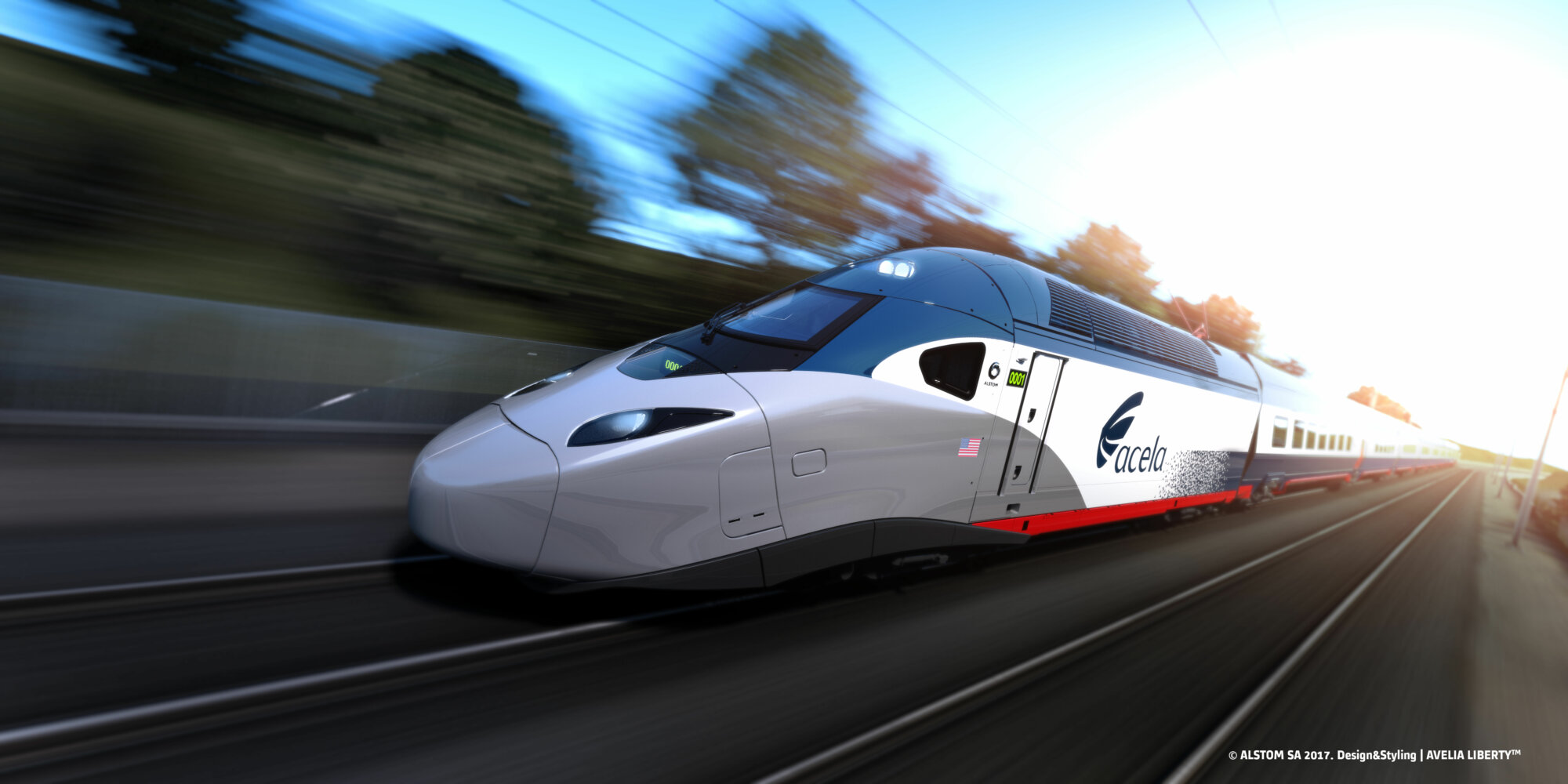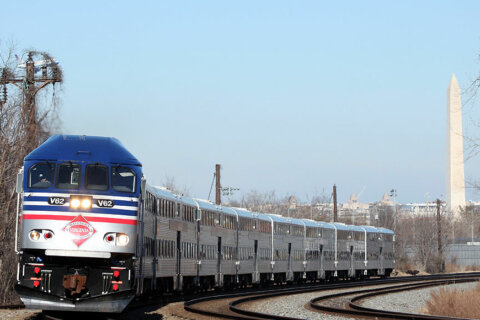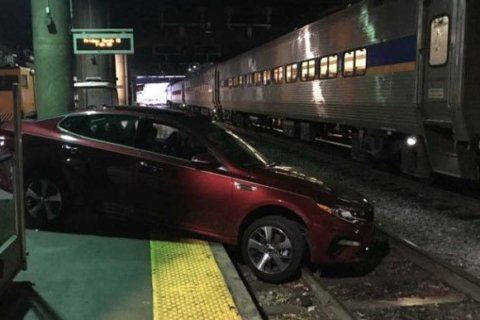Amtrak’s expanded Acela trains may not be ready next year because they’ve seen a series of delays and renewed oversight concerns, and there’s “little margin for error,” Amtrak’s Office of Inspector General warns in an audit.
“[M]anagement and structural weaknesses still pose significant risks,” the new audit finds. “Foremost is that project delays have eliminated any cushion in the schedule, and multiple indicators point to further delays beyond the planned service launch in [redacted] 2021.”
A response from Amtrak management said the plan is still to put at least the first new train into service sometime next year, and nothing is further delayed — yet.
Sections of the audit listing the current planned launch date and other specific information about delays are also redacted, although the delays appear to be in the range of months at a minimum, rather than days.

If there is a delay, Amtrak may run the existing Acela trains longer than planned, which could add to Amtrak’s costs because that might require significant overhaul work. The current trains started service in 2000, and if delays go beyond a year, some or all of the trainsets might need to be pulled from service, even if a replacement isn’t ready.
The uncertainty could cost Amtrak millions of dollars in ticket sales, since it will not be sure when the trains with more seats will actually be available. Amtrak only plans to sell the extra seats when it is 99 percent sure the extra seats will be available for a particular time slot, and is not counting on those extra sales any time before 2022 at the earliest.
Not selling those seats could add up to giving up $15,000 per new train trip for several months.
Amtrak’s management response to the audit projects “greater scheduling certainty” by a redacted date, but one that would match the “Fall business travel peak” in some future year.
A $2.1 billion upgrade
Acela service is Amtrak’s most profitable area, carrying about 3.6 million riders per year. The $2.1 billion train upgrade program includes $1.6 billion for 28 new trainsets to replace the current 20 Acela trains and $850 million for maintenance facility and other upgrades in places such as D.C., New York and Boston. The new trains will add 82 seats on each trip and allow for more frequent service.
Testing is picking up, with the completion of two prototype trains. Meanwhile, maintenance facilities must be adjusted for the new trains, and IT systems need upgrades. The report finds there is no more cushion left in the schedule.
Testing on tracks in the Northeast Corridor is expected this summer or fall.
Amtrak has a dedicated team overseeing the project, but the audit raises concerns about key people or departments being overburdened by other projects, such as rebuilding New York’s Penn Station. It was also unclear whether the program leader had the authority to make all decisions. Since the audit raised those concerns, Amtrak has adjusted some of those responsibilities.
Two out of five required areas to start service on time have already been delayed, including delays for delivery of the first trainset from the manufacturer, Alstom.
In 2017, the delays from Alstom were projected to be about three months, although Amtrak continues to dispute those issues. This month, Amtrak told the inspector general’s office there could be additional delivery delays because Alstom has challenges getting of the pieces of the Positive Train Control safety system, and because changes will likely need to be made during Federal Railroad Administration safety testing of the trains on the Northeast Corridor.
Multiple new IT systems will be needed, and nearly 1,000 conductors, engineers and other staff need to be trained on how to use and maintain the new vehicles.
‘An extraordinary amount of work ahead’
Last February, the person in charge of the maintenance facility upgrades left Amtrak, and the position remained vacant for six months. That has delayed contracting for the maintenance facility changes required to maintain the new trains by at least five months.
“Company executives acknowledged that all five elements would have to proceed nearly flawlessly to ensure on-time revenue launch in 2021. Nevertheless, although company officials have discussed other options, the company has developed only one contingency plan,” the audit found.
The details of that plan are redacted. Alternatives could include cutting service on less-full Acela trains to ensure the busiest trains keep running in the event of any issues, or running some Acela trips with regular Northeast Corridor cars.
“[A]s of December 2019, the program office had begun calculating the revenue impacts of reducing service and had held preliminary discussions about additional contingency plans but had not developed them,” the audit said.
Amtrak is now developing other contingency plans “which span from minor delay to extensive delay or disruption.”
“There remains an extraordinary amount of work ahead and Amtrak management is confident that the proper resources are aligned to deliver this ambitious program on scope, schedule, and budget,” management wrote in their response to the audit.
The concerns about the Acela program also need to be addressed for other major upcoming Amtrak projects, such as the New York Penn Station construction, and for other planned purchases, such as new locomotives and new railcars for other trains, the audit concluded.







